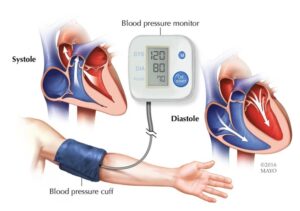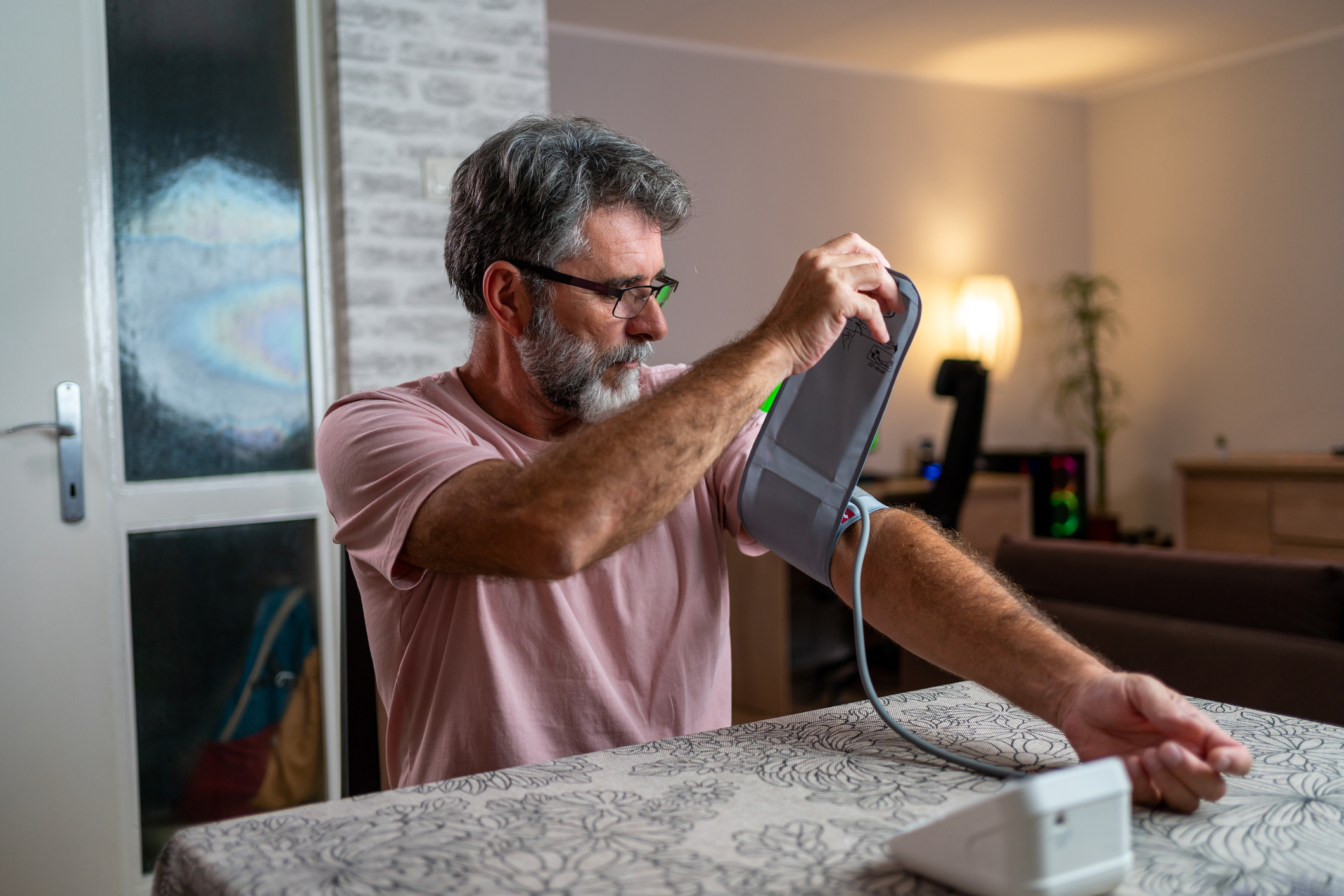Understanding and managing your blood pressure is a cornerstone of good health. This guide will walk you through what blood pressure is, why it’s important, and practical steps you can take to keep yours at a healthy level.
What is blood pressure and why does it matter?
Your body needs a certain amount of pressure to circulate blood, and this is what we call blood pressure. The NHS defines blood pressure as “a measure of the force that your heart uses to pump blood around your body.”
Blood pressure readings consist of two numbers, measured in mm Hg (millimetres of mercury):
1. Systolic pressure (Top Number): This is the pressure when your heart pushes blood out.
2. Diastolic pressure (Bottom Number): This is the pressure when your heart rests between beats.
Ideally, your blood pressure should be below 140/90, unless your doctor advises otherwise.
It’s crucial to get your blood pressure checked regularly, especially if you have high blood pressure, because it often shows no symptoms. If left undiagnosed, high blood pressure can lead to serious health issues like kidney damage, stroke, or a heart attack. If you think you might be at risk, make an appointment with your GP to get checked.

Photo credit: Mayo Clinic
Simple ways to reduce your blood pressure
The good news is there are many effective ways to lower your blood pressure and reduce your risk of serious complications.
Get Moving
Are you sitting too much? We all know that regular exercise makes our hearts stronger and more efficient at pumping blood. With many of us having desk jobs, commuting, and spending leisure time on screens, sedentary behaviour is increasingly common.
Aim for 150 minutes of exercise per week. This doesn’t have to be overwhelming; you can break it down into 10-minute sessions. Everything counts, from walking or running to simply taking the stairs. If you struggle with motivation, encourage friends and family to join in and motivate each other!
Cut Down on Salt
High salt intake, particularly due to sodium, is directly linked to high blood pressure. Adults should eat no more than 6g of salt per day, and children even less (2-5g depending on age). Many of us develop a taste for salt, making it hard to cut back as food can seem bland.
Here are some tips to help you reduce your salt intake and protect your heart:
- Check food labels: Look for “low in salt” or “low in sodium” on packaged foods.
- Remove the salt shaker: Don’t add salt at mealtimes; often, food doesn’t need extra seasoning – it’s just a habit.
- Season with herbs and spices: If you already have high blood pressure, try flavouring your meals with herbs and spices instead of salt.
Moderate alcohol intake
Did you know that 3 pints of 5% beer for men or 2 large glasses of wine for women are considered a binge drinking session? Many people aren’t aware of how much is “too much.” Alcohol can have serious long-term effects on blood pressure and has been shown to increase the risk of hypertension in both men and women.
You shouldn’t consume more than 14 units of alcohol per week, which is roughly equivalent to 6 pints of 4% beer or 6 standard (175ml) glasses of wine. To minimise harm, spread your alcohol intake throughout the week rather than drinking it all at once. For more information on alcohol guidelines, click here.
Eat a balanced diet and manage weight
A healthy, balanced diet is key to reducing high blood pressure and lowering your risk of coronary heart disease.
- Boost potassium: This vital mineral helps your body get rid of excess sodium. You can find it in many fresh fruits and vegetables like tomatoes, bananas, avocados, and oranges, as well as dairy products (milk, yoghurt) and fish (tuna, salmon).
- Variety is key: Ensure your diet includes a variety of nutrients from fruit and vegetables, starchy foods, dairy, protein, and small amounts of healthy fats and sugars. For more details on balanced diets and portion control, click here.
Manage stress
Reducing stress can significantly improve your blood pressure and overall health. Stress triggers your body’s “fight or flight” response, causing your heart rate to increase and beat faster.
Here are ways to reduce stress:
- Slow down and breathe: Take deep breaths to relax and evaluate situations calmly.
- Prioritise sleep: Getting enough quality sleep helps you think more clearly and deal with challenges differently.
- Exercise regularly: Physical activity is a powerful stress reliever.
How can Cavendish Homecare help?
At Cavendish Homecare we are experts in providing private homecare for clients who want to remain in their own homes. When it comes to your health and well-being, choosing the right homecare package is of utmost importance and navigating this process can be overwhelming. With Cavendish Homecare by your side, you’ll have the support you need to remain safely at home while enjoying elevated health and wellbeing.
If you would like to enquire about our homecare services, contact us on, 02030085210 or email us at info@cavendishhomecare.com.

About the Author…
Misha Zemkova
Operations Coordinator
Misha plays a key role in ensuring the smooth and efficient running of day-to-day operations across the business. With a background in supported living and a degree in Health and Social Care, she brings both experience and empathy to her role.
 Back
Back